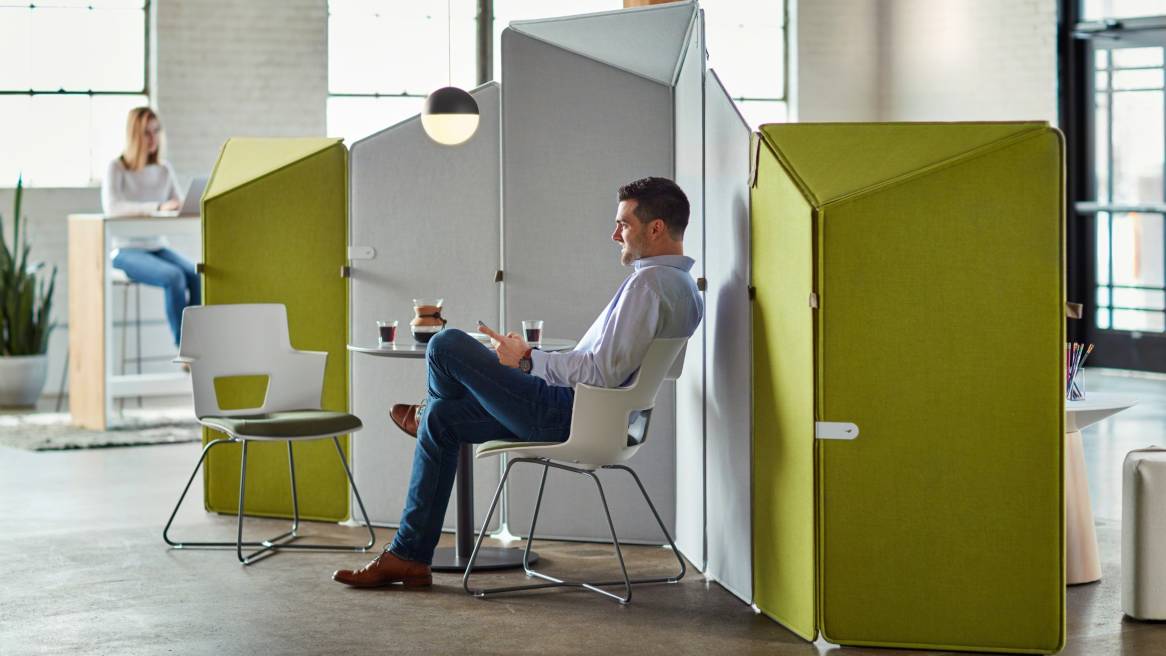How Is Our Work Experience Changing?
Competence, relatedness and autonomy are at the core of a great workplace.
When 360 first sat down with Dr. Ron Friedman, the award-winning social psychologist, author and leader of ignite80, he shared why it’s never been more important to create a great employee experience. Friedman and his team at ignite80 work with companies all over the world to improve employee engagement. His book, The Best Place to Work, was originally published in 2014. In the second part of his interview with 360 (Read: Part I The Secret to a Happy Workplace), Friedman shares what’s changed since he wrote his book and what has remained at the core of a great workplace.
360: It’s been four years since you released your book. What’s different now?
RF: I see a few different things that have been happening over the last few years. One is that decentralized teams are far more common than they were even a few years ago. Organizations are challenged with how to keep people connected when they’re in different locations. The second is a greater appreciation for the level of contribution that focused work provides. When I wrote the book, collaboration was all the rage. Now, we know we need to create opportunities for people to be able to work in a way that doesn’t involve being distracted every few minutes.
The final thing I see is there’s an ever-growing wave of opportunities for us to stay connected on an ongoing basis. That’s both good and bad. It’s bad in the sense that we’re carrying our office with us everywhere we go, so there’s no ability to disconnect. But, it’s also positive if you use that appropriately. A great example is a walking meeting where you can use your phone to record yourself and transcribe notes. You can email ideas to yourself when you’re at different locations. It’s enhancing our performance in some ways. And, in other ways, it is crippling because we can’t seem to get away from work unless we have the right habits in place that allow us to take breaks.
360: In the workplaces you visit, have you seen the work experience change in how we approach workplace design?
RF: I do see a growing recognition that informal spaces are valuable. It used to be that whatever people were doing away from their desk was viewed as a waste of time. I think there’s a growing understanding now that when we spend time in informal spaces, it’s in those conversations that we create deeper connections with our colleagues which makes collaboration much more effective. Our performance improves when we feel closer to our colleagues.
360: The work we do today is always changing. But, are there any constants when it comes to creating a great workplace?
RF: Absolutely. At the core of what makes a successful workplace, you’re always going to have the three, basic, psychological needs. The need for competence — feeling like you’re good at your job but also like you have opportunities for growth. The need for relatedness — connecting to others in a meaningful way, and feeling valued and respected. And, the need for autonomy — having some say in how you go about doing your job.
360: Today’s workplace is the most diverse in history. How do you satisfy everyone’s needs?
RF: The solution is providing people with choice. This really is the manifestation of autonomy — giving people some control over how they go about doing their job and part of that can be choosing the location of where they do their work. In The Best Place To Work, I talk about the university model providing a really nice roadmap for organizations. If you think about how students operate within universities, they have the option of going to the library, dorm, cafeteria, quad or gym depending on what they need to do.
The future of the workplace is a location that attracts employees who want to come there because it facilitates their performance. That’s what we need to be thinking about when it comes to building great workspaces because ultimately that’s what people are looking for. The answer lies in building offices that optimize space for performance instead of just profitability.
360: How do you recommend workplaces give people some autonomy over where they get their work done?
RF: Anytime you’re requiring people to go anywhere, you’re probably not getting their best performance because it goes against the basic need of having some control. Providing people with some choice is critical at the office. Give people the power to step away from others and do their focus work. At the same time, provide people with collaborative spaces so they can get together and talk informally without having to reserve a conference room. And, offer people opportunities to restock their mental energy, whether it be through exercise or restoration rooms for napping, or yoga.
360: How important do you think the physical environment is to the employee experience?
RF: Our physical surroundings have a profound impact on our mindset. Where you are affects the way you think. For example, high ceilings can impact the quality of your creative thinking. Furniture can impact how rigid or flexible your thinking is. Create a workplace with lots of different settings to offer people options so they can match their environment to their task rather than having to do the reverse. Giving people the ability to do their tasks in an environment that is conducive to that task ultimately leads them to having much better outcomes. When you ask how important the environment is, it’s just about one of the most critical things you can think of.
Dr. Ron Friedman is an award-winning social psychologist who specializes in human motivation and top performance. He’s the author of The Best Place To Work: The Art and Science of Creating an Extraordinary Workplace. And, leader of ignite80 — an organization dedicated to improving employee engagement by giving leaders and their teams science-based practices for enriching engagement and improving everyone’s experience at work.



